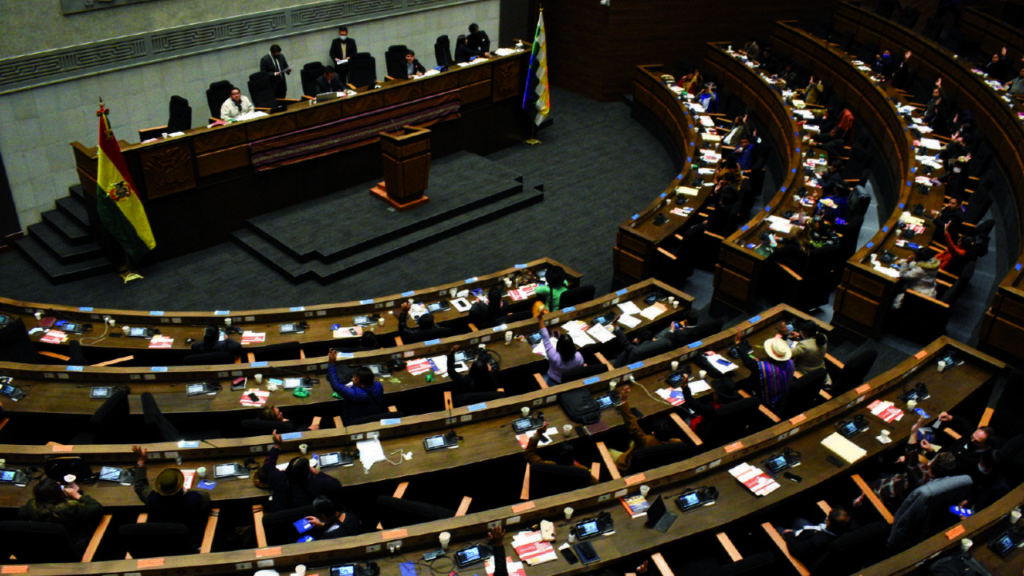The brand new president of the Federal Criminal Cassation Chamber, Alejandro Slokar, affirmed this Sunday that “many” of his colleagues who were critical of the establishment of the Judiciary In the macrismo, “also its Gestapo, the anti-judicial” and internal “McCarthyism” suffered and considered that a Supreme Court without women “is institutionally indefensible.”
“There was McCarthyism, and also a sterilization campaign in an attempt to neutralize those who insinuated themselves as an obstacle,” added the magistrate, one of the founders of Justicia Legitima, in an interview with the newspaper Página / 12 published today.
Slokar He recalled that the testimonies that account for “the pressure received” during the management of Together for Change they are in a case known as “judicial table” and said that “currently the persecution or discipline” does not have the same “meaning or depth as then.”
Slokar highlighted that “I am proudly the founder of Justicia Legitima, even though due to impossibility for years I have not held a directive position. It is about the group that is nourished by all those who for years, and with different governments, denounce and openly maintain a position Criticism within the Judiciary “.
“We met almost a decade ago in public debate, with more than a thousand and a half people in the National Library. It is still a postponed debate. And unlike corporate actions, we made a self-criticism to demand a more plural and more judicial judicial system. independent, ready to make his performance transparent, “he added.
He regretted that “many paid a high price for it, since professional careers are the main asset of those honest officials. They were even worth their Gestapo, the anti-judicial. Because there was McCarthyism, and also a sterilization campaign in the attempt to neutralize those that were insinuated as an obstacle “.
“Some colleagues testified in the case known as” judicial table “in their condition of victims, they counted the pressure received,” he added.
The magistrate also considered that “it would be necessary to maximize the political capacity in favor of an agreement with the opposition to make effective the reform” of the Judicial Power.
He indicated that this reform “requires a structural change”, while warning that “there is already a citizen vigil that calls to overcome the morass and regenerate public confidence in justice.”
The supreme court
Refering to Court and its current composition -after the resignation of Elena Highton- said that “the anomaly of four judges without women is institutionally indefensible, beyond the capacities of its members.”
“However, I see a criticism that is hyperfocused on the people of the judges, in general, or on the number. And that is staying on the superficiality of the iceberg. It is not enough, structural change is required because a quartet or even a symphony needs a different and modern repertoire, “said Slokar.
He added that “the elaboration must be more sophisticated and deep in accordance with a reengineering in accordance with the demands and needs of the 21st century and the demands of a less unjust justice.”
The judge also referred to the complaint from the current Federal Intelligence Agency (AFI) about the alleged promotion of an “anti-union Gestapo” by former Buenos Aires Labor Minister Marcelo Villegas. He said that “we must never forget that illegal espionage, persecution and captivity, and even the elimination of opponents, union members, businessmen and even the judiciary, is the trademark registered by the last civic-military dictatorship.”
Asked about the passage to Comodoro Py of cases in which alleged crimes involving Macrista officials are investigated, Slokar indicated that this “is the territory that occupies the centrality of the judicial system”, but has “benefits and horrors” that at the same time “They may exist in other territories.”
He also warned that “in the crisis of public confidence it does not appear as a place where the guarantees of the rule of law are strictly protected, which are the only tools that prevent the perversion of political criminalization, whoever its circumstantial recipient is.”
“Faced with such a concentration of power, then the pretense of an” à la carte justice “arises, with attraction towards this terrain, where even the gaucho (Martín) Fierro would warn that the rain is not even,” he sentenced.

















